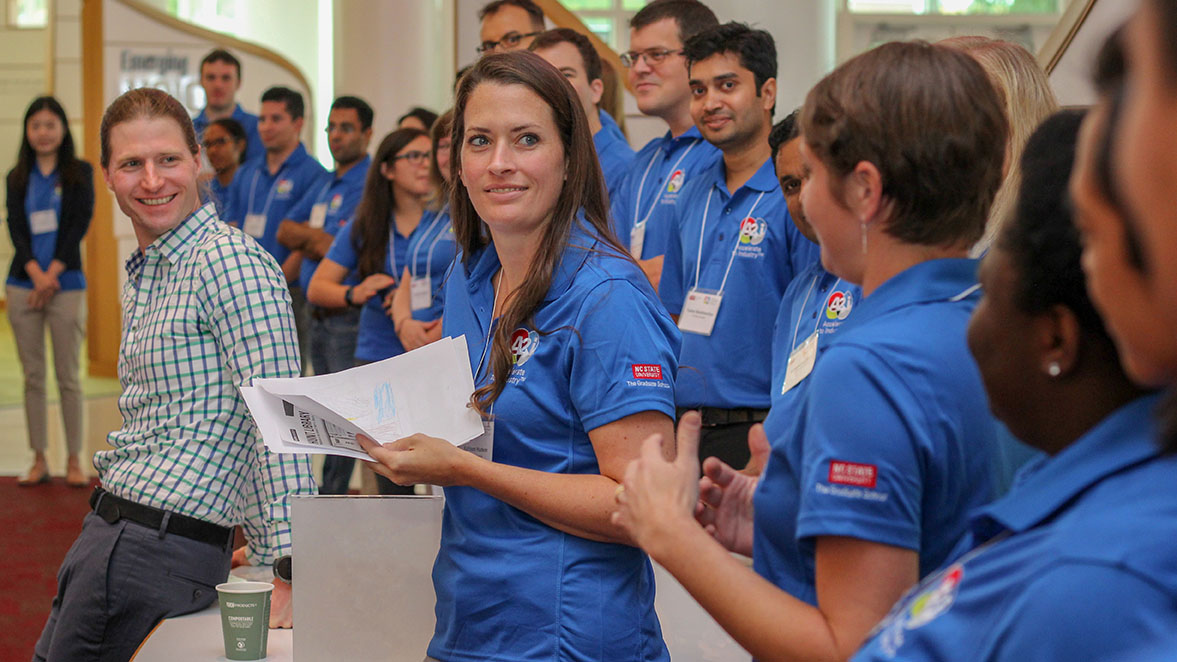NSF Grant Will Help Grow Industry Program

The Graduate School has been awarded NC State University’s first-ever Innovations in Graduate Education grant from the National Science Foundation. The $400,000 grant will allow the Graduate School to extend the Accelerate to Industry (A2i) program to other universities.
A2i is a program offered by the Graduate School’s professional development team that helps graduate students, postdoctoral scholars and graduate alumni explore careers in industry. Though careers in academia traditionally have been the career pathway for many Ph.D. graduates, those jobs have become increasingly difficult to obtain over the past several decades. However, industry is eager to hire Ph.D. grads with the right kind of technical expertise and skillsets.
“This support from NSF signifies not only the value of this program to the broader graduate community, but also the innovative nature of graduate education here at NC State,” said Peter Harries, dean of the Graduate School. “We hope A2i will become a national model for the best practices in training graduate students and postdocs for careers in industry. We look forward to building a network of university and industry partners.”
The Innovations in Graduate Education program is designed to encourage the development and implementation of bold, new and potentially transformative approaches in career preparation within graduate education. The IGE program addresses both workforce development, emphasizing broad participation and institutional capacity building needs in graduate education. Strategic collaborations with the private sector, NGOs or non-governmental organizations, government agencies, national laboratories, field stations, teaching and learning centers, informal science centers and academic partners are encouraged.
The A2i program contains interrelated modules that explore ways for graduate students in research-based master’s and doctoral degree programs to develop the skills, knowledge and competencies needed to pursue a range of industry careers.
Through the grant, the Graduate School will share the A2i model with 30 other institutions over the next three years. A2i leaders also will share data and publish results on how the model is working at other institutions. The funds will support a half-time graduate assistant who will help administer the program and interact with the partner institutions.
“We are excited about the expansion of the A2i program, and look forward to the opportunity to work with more institutions on this program,” said Laura Demarse, assistant dean for professional development at the Graduate School.
As a test of the approach, last June the Graduate School held its first A2i train-the-trainer workshop, which attracted 22 representatives from other universities. Under the IGE grant, train-the-trainer workshops will be held twice a year.
The University of Florida has been a partner in A2i for two years, and representatives attended the train-the-trainer workshop this summer. The University of North Carolina at Charlotte will offer its first industry immersion week in March.
The signature program of A2i is a summer Industry Immersion Week where participants – mostly late-stage Ph.D. students and postdocs – interact with industry representatives. This year’s event, the third of its kind at NC State, attracted more than 40 participants and featured Shark Tank-like pitches where teams share their ideas for a marketable technology.
- Categories:


